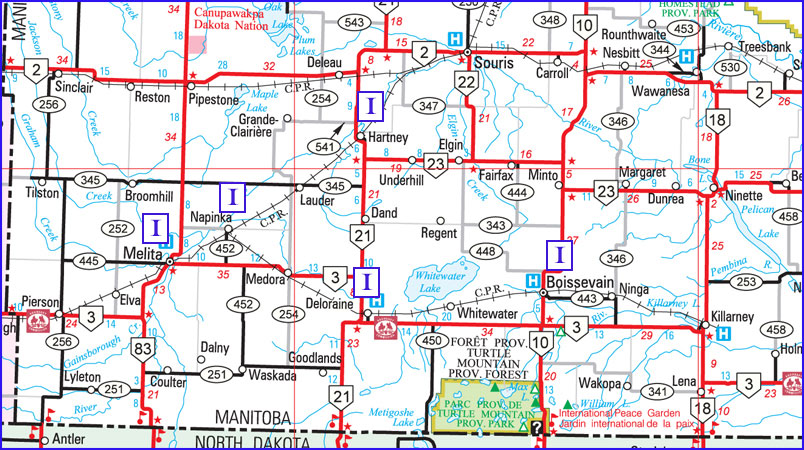Manufacturing
| The story of manufacturing in
Manitoba’s small towns is story of individuals starting by meeting a
local need. A surprising number of products that, in our modern
world would tend to be coming from far away, were made right here at
home. The fact that there was a local need for products that, other wise would have to be shipped from some distance and at some significant expense, spurred efforts to improvise and create. The good news was that the people coming to these new communities brought with them an array of skills. Many had worked in factories and trades and gained skills that could be readily out to use in this new context. In the history of Souris City, one of the first villages in the Southwest Corner we learn that, “A Mr. John Harris found his niche in the manufacture of axe and hammer handles.” Why not? How complicated could that be? Locations  As towns grew, both the demand for goods and thus the possibilities for industry expanded. In 1893, when H. C. Pierce began making pumps, he quickly supplied one thousand pumps for the local market. But soon everyone had a pump, and business slowed down pretty quickly. Alex Mains, and his brother set up a Sash and Door Factory, in 1900, and added a planing mill to provided materials for the many new homes which were built in this and other communities, the need for such materials was a little more ongoing. Another common example of small town manufacturing focused on another vital need. Victor Duchesneau arrived in Hartney about 1901 and in 1904, along with his blacksmith business, he started a carriage and wagon factory. He could turn out "buggies, wagons, carriages and all fine lumber work with city style and finish." Edouard Isabey who opened a small machine shop in about 1893, also made and repaired carriages. In a listing of Hartney’s early businesses we also find an entry for “Shore and Co. carriage makers.” Deloraine The Deloraine Carriage Factory run by Mr. B. Steele was for a short time “ one of the largest of its kind in the Province. Six men are employed, four blacksmiths, a woodworker and a painter. Melita In 1891 when the town of Melita started, Mr. Richardson built a carriage shop which he sold two years later. Also in Melita, George Lea, was a carriage maker, and D. Lamont’s shop build buggy wheels among other things. The Holden Furniture and Funeral business had a glass paneled hearse on wheels, which could be changed to specially built sleighs for winter use. It was built by a carriage maker in Napinka some time before 1910. Elsewhere In Boissevain, Butler and Frith were carriage-makers and blacksmiths. |


